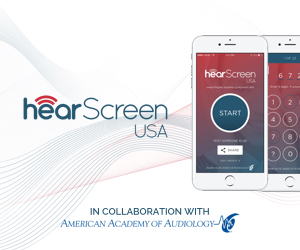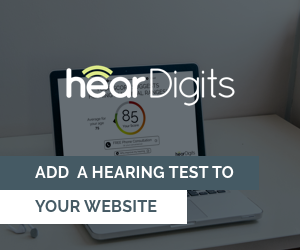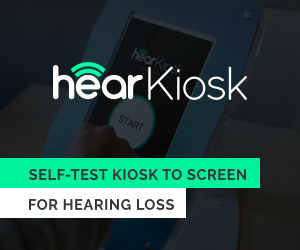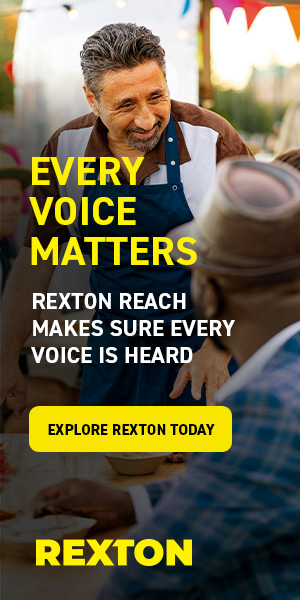Digital Health and the Future of Audiology
AudiologyOnline: How is the clinical audiology landscape changing?

Prof De Wet Swanepoel: Many factors currently influence the audiology landscape. Major global trends in technology and connectivity are driving changes in service delivery to incorporate and leverage connected technologies to improve the efficiency and reach of professional services. At the same time the shortage of audiologists for the growing number of persons with hearing loss is driving the need for accessible and affordable hearing care. This consumer-driven trend is the driving force around the rise of audiological services and hearing aid fittings in retail spaces. Another effect is the growing market for over-the-counter hearing aids, personal sound amplification devices, self-fitting hearing aids, hearables and augmented hearing devices that are directly available to consumers.
AudiologyOnline: Why all the fuss around accessibility and affordability in hearing care?
Prof De Wet Swanepoel: Hearing loss is increasing at a rapid rate. The WHO estimates for 2018 indicate 466 million persons living with permanent disabling hearing loss compared to 360 million in 2012. In reality however when we include milder losses there are more than a billion persons living with hearing loss. The main reasons for this increase is the aging world population and longer life expectancies. The large numbers of persons requiring hearing health care is creating a consumer drive to make these services more accessible and affordable.
AudiologyOnline: What can audiologists do to be prepared for market threats?
Prof De Wet Swanepoel: Never has it been more important for audiologists to differentiate themselves in their service-provision. For example, audiologists should not define their practice solely as a hearing test operator and a dispenser of hearing aids. Audiologists should be defined as person-centred clinicians or managers of lifelong communication, supporting persons across the entire patient journey from awareness through to intervention and continued support. For more information on this see this article by the Ida institute.
Another important way to be prepared for these threats is to develop, integrate and manage a digital health strategy that is consumer oriented. This strategy should increase public awareness, position audiologists as the hearing health experts and generate direct referrals to audiology practices.
AudiologyOnline: Can you give us a definition of digital health?
Prof De Wet Swanepoel: Digital health is a broad concept. It serves as an umbrella term that includes categories like mHealth, health IT, wearables, telehealth and telemedicine and personalised medicine. It also includes the concept of empowerment to better track, manage and improve your own and your family’s health.
AudiologyOnline: Why is there so much interest in digital health?
Prof De Wet Swanepoel: Advancements are leading to a convergence of people, information technology and connectivity, to improve health care and health outcomes.
Digital health can reduce inefficiencies, improve access, reduce costs, increase quality and can make medicine more personalized (FDA 2017).
AudiologyOnline: Why should Audiologists care about digital health technologies?
Prof De Wet Swanepoel: Audiology as a profession has always been closely tied to technological developments. The technological advances that saw the arrival of the audiometer and of hearing aids also saw the birth and growth of the profession of audiology. With the advent of digital health it makes sense that audiology, which has always relied on new technologies, incorporate this to grow and improve their services.
AudiologyOnline: What digital health tools can be used to expand and support audiology services?
Prof De Wet Swanepoel: There is an increasing range of options for digital health tools that can support audiological services across the patient journey from detection through to intervention and support. eHealth and mHealth solutions for remote counselling and hearing aid troubleshooting are becoming common features provided by hearing aid manufacturers. Remote programming and fine tuning options are also coming onto the market.
New developments that take more of a consumer-driven approach can increase public awareness around hearing loss whilst offering to detect or confirm a hearing problem on a mobile device or website. These services can subsequently connect consumers to an audiologist through direct referral or even providing the functionality to book an appointment. Included in these initiatives can be decision-support tools that help consumers at various stages of change work through the decision-making process to follow-up on their hearing loss.
AudiologyOnline: Give us some examples of these new consumer-driven digital health tools?
Prof De Wet Swanepoel: The hearX group develops smart digital health solutions aimed at consumers to increase awareness, make hearing screening accessible whilst connecting those who fail to audiologists for follow-up care.
We developed a digits-in-noise test validated for a smartphone application (Potgieter et al., 2016; Potgieter et al., 2018) that launched as the national hearing test of South Africa in 2016. The App, called hearZA, is a strategic public awareness tool for accurate detection of hearing loss that allows for personalized hearing health tracking, in-app decision support, and a referral network to link people to their closest audiologist. To date thousands of people have been identified with hearing loss through the App and referred directly to their closest audiologists.
Based on the success of this App we are now launching the national hearing screening App for the US in partnership with the American Academy of Audiology, called hearScreen USA.
AudiologyOnline: These are great national initiatives but what about local audiology practices and digital health?
Prof De Wet Swanepoel: Of course local practices can register as referral partners on the national hearing screening apps to get direct referrals from consumers who fail a hearing test and request to be connected to an audiologist.
But to bring digital health tools closer to home we developed a web-app called hearDigits, that incorporates the same digits-in-noise technology, so that any audiologist can incorporate this into their practice website. The widget, which can be customised, offers an accurate 2-minute hearing screening test to web visitors with the option to be contacted by the audiologist or to make an online booking. In essence this turns an audiologists website into a lead generation tool.
AudiologyOnline: Are there any other digital tools that audiologists can use to reach consumers?
Prof De Wet Swanepoel: Another strategy is to use digital tools in common spaces where consumers can access information, a hearing screening and have the possibility to link to audiologists. We’ve packaged the technology used in the hearDigits and hearScreen USA tools into a hearing screening kiosk format called hearKiosk. The self-test kiosk is utilised in community settings such as pharmacies, physician waiting rooms and optometry offices. The branded kiosk raises awareness of hearing loss and provides a free self-test screening with the option to connect to the audiologist after the test result through a secure cloud-based platform.



Audiology is Changing: Future-proof Your Practice with Digital Health Tools is available on AudiologyOnline as a CEU course offering. More information can be found on the hearX webiste or the hearX Partner Page on AudiologyOnline.
References
Potgieter, J. M., Swanepoel, D. W., Myburgh, H. C., Hopper, T. C., & Smits, C. (2016). Development and validation of a smartphone-based digits-in-noise hearing test in South African English. International journal of audiology, 55(7), 405-411.
Potgieter, J. M., Swanepoel, W., Myburgh, H. C., & Smits, C. (2017). The south african english smartphone digits-in-noise hearing test: effect of age, hearing loss, and speaking competence. Ear and hearing


